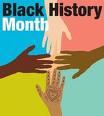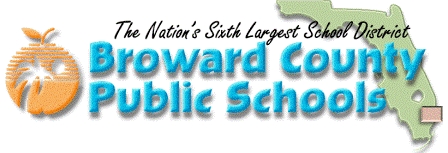|
||||

Black History Month
During February, teachers and students all over the United States will be participating in activities that commemorate Black History Month.
Black History Month is a federally recognized, nationwide celebration that provides the opportunity for all Americans to reflect on the significant roles that African-Americans have played in the shaping of U.S. history.
Dr. Carter G. Woodson, considered a pioneer in the study of African-American history, is given much of the credit for Black History Month, and has been called the "Father of Black History." The son of former slaves, Woodson spent his childhood working in coal mines and quarries. He received his education during the four-month term that was customary for black schools at the time. At 19, having taught himself English fundamentals and arithmetic, Woodson entered high school, where he completed a four-year curriculum in two years. He went on to receive his Master's degree in history from the University of Chicago, and he eventually earned a PhD from Harvard. Disturbed that history textbooks largely ignored America's black population, Woodson took on the challenge of writing black Americans into the nation's history. To do this,
Woodson established the Association for the Study of Negro Life and History. He also founded the group's widely respected publication, the Journal of Negro History. In 1926, he developed Negro History Week. Woodson believed that "the achievements of the Negro properly set forth will crown him as a factor in early human progress and a maker of modern civilization."
Woodson chose the second week of February for the celebration because it marks the birthdays of two men who greatly influenced the black American population: Frederick Douglass (February 14), an escaped slave who became one of the foremost black abolitionists and civil rights leaders in the nation, and President Abraham Lincoln (February 12), who signed the Emancipation Proclamation, which abolished slavery in America's confederate states. In 1976, Negro History Week expanded into Black History Month.
The month is also sometimes referred to as African-American Heritage Month.
Source: http://blackhistorypages.net/pages/cgwoodson.php
http://www.chipublib.org/002branches/woodson/woodsonbib.html
![]()
For information on how to participate in the 2011 National African American Read-In http://www.ncte.org/action/aari/packetinfo
 The following websites might provide some ideas for observing Black History Month:
The following websites might provide some ideas for observing Black History Month:
http://www.cnn.com/EVENTS/black_history/index.html
http://www.timeforkids.com/TFK/specials/bhm/0,8805,97217,00.html
http://www.teachervision.fen.com/black-history-month/teacher-resources/6602.html
http://www.kn.pacbell.com/wired/BHM/index.html
http://teacher.scholastic.com/activities/bhistory/
http://history.com/minisites/blackhistory/
http://biography.com//blackhistory/
http://teachingtolerance.org
Continue to check the Multicultural CAB Conference for current information and updates of resources and materials about Black History Month and other February happenings.
Please share the programs and projects that you have developed with the Multicultural, ESOL and Program Services Department. If you have pictures, please share so they can be posted on the CAB Conference.
Send to:
linda.medvin@browardschools.com or brunilda.chico@browardschools.com
Thank you to Pembroke Pines Charter High School for sharing their Multicultural Newsletter dedicated to African American History.
Back to Home
Multicultural, ESOL and Program Services Department
201 SW 172 Avenue Pembroke Pines, FL 33029 USA
Phone: (754) 321-2950

